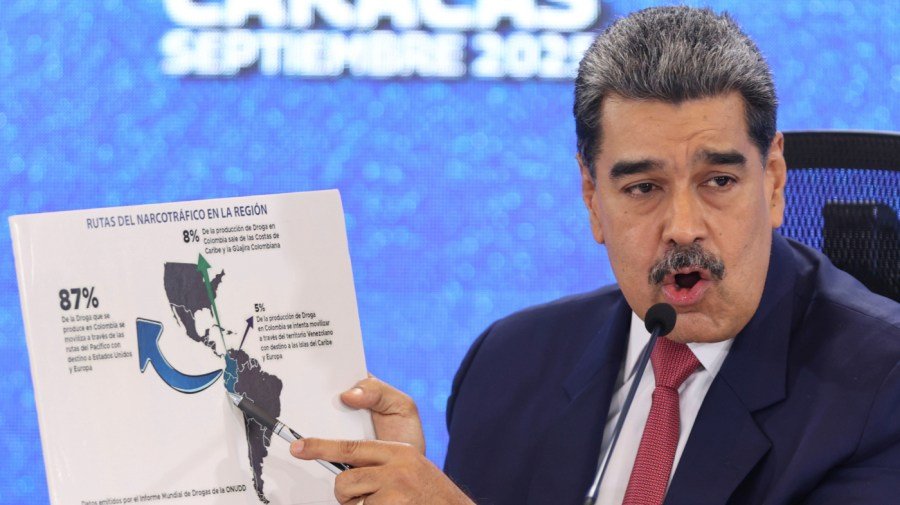
Interdictions and captures have been replaced by detections and explosions. Timid and traditional diplomacy has been replaced by strategy and strength. Nicolas Maduro will soon face the diplomacy of the USS Gerald R. Ford, the most powerful and persuasive armed ship in the world.
Chief Pentagon spokesman Sean Parnell has stated that, in support of the president’s directive to dismantle transnational criminal organizations, the Secretary of War has directed the Gerald R. Ford Carrier Strike Group and embarked carrier air wing to the U.S. Southern Command area of responsibility.
“The enhanced U.S. force presence,” Parnell said, “will bolster U.S. capacity to detect, monitor and disrupt illicit actors and activities that compromise the safety and prosperity of the U.S.”
The USS Gerald R. Ford is moving away from the Mediterranean Sea and the conflict in Gaza to address what appears to be the United States’ top priority: the Cartel of the Suns and its top leader, Maduro. This aircraft carrier is not just a powerful tool of war; it’s the full toolbox.
The Ford Carrier Strike Group has two nuclear reactors, a crew of 4,600 members, 75 military aircraft, advanced weapons elevators, F-18 Super Hornets and an E-2 Hawkeye.
The Ford is accompanied by modern ships such the guided-missile cruiser Normandy and a team of destroyers like Carney, Roosevelt, Thomas Hudner, Ramage and a powerful submarine. This is an eloquent and extraordinary diplomacy, tailor-made to deal with brutal regimes like the one in Venezuela.
The U.S. has not only changed its deterrence and diplomacy but also its approach to narco-dictators in the Western Hemisphere. “Narco-terrorists intending to bring poison to our shores will find no safe harbor anywhere in our hemisphere,” Secretary of War Pete Hegseth said after destroying a 10th drug boat bound for the U.S. “Just as al Qaeda waged war on our homeland, these cartels are waging war on our border and our people. There will be no refuge or forgiveness — only justice.”
But dictators like Maduro aren’t going to go away just by destroying a couple of boats. The regime is convinced that the U.S. is playing a strategy of pressure and nothing more. The tyrant from Miraflores survived Trump’s first administration, the sanctions, the pandemic, international isolation, and even the threat of invasion. Now he wants to repeat the formula — but he’s got it all wrong.
Maduro had the audacity to say that he would not leave power because he has Russian weapons to fight the battle.
“Any military force in the world knows the power of the Igla-S,” he said. “Venezuela has no fewer than 5,000 of them in key anti-craft defense positions to guarantee peace, stability, and tranquility.” He also noted that they have “simulation equipment that puts thousands of Igla-S operators in a position of good aim. In the last mountain and the last town.”
Despite Maduro’s continued threats and misbehavior, his options seem to be running out. He is at a crossroads, facing a choice: either flee to Moscow like Bashar al-Assad did, or else die clinging to power like Muammar Gaddafi did in Libya.
Trump has a strong determination to end the threat presented by drug cartels. “I don’t think we’re going to necessarily ask for a declaration of war,” he said. “We are just going to kill people that are bringing drugs into our country. They are going to be, like, dead.”
Nobel laureate Maria Corina Machado has said that Maduro started the war against the Venezuelan people, but that Trump will end it. “The transition is underway, and it will be orderly and peaceful,” she said. “We are moving from tyranny to democracy, from chaos to order, from misery to prosperity.”
Arturo McFields is an exiled journalist, former Nicaraguan ambassador to the Organization of American States and a former member of the Norwegian Peace Corps. He is an alumnus of the National Defense University’s Security and Defense Seminar and the Harvard Leadership course.


